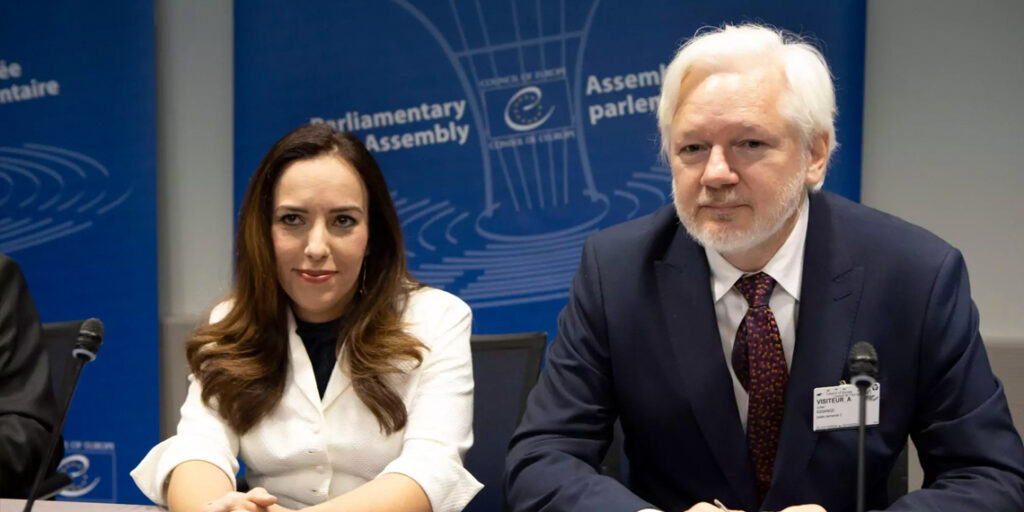The UK government is under mounting pressure after refusing to respond to the Council of Europe’s call to investigate the treatment of Julian Assange, the founder of WikiLeaks.
Politicians and human rights groups across Europe have expressed concern over the British Home Office’s stance, particularly after the Council’s parliamentary assembly passed a resolution designating Assange as a “political prisoner”.
Julian Assange, who spent five years in Belmarsh maximum-security prison in London, was released in June and returned to his native Australia.
The UK government had detained him while the United States pursued his extradition over charges related to the publication of classified documents.
His treatment has sparked widespread outrage, particularly from international bodies like the Council of Europe.
The resolution, passed earlier this month, urges the UK authorities to review whether Assange was subjected to torture or inhumane treatment, a request stemming from concerns about violations of international human rights laws.
The Council also highlighted that Assange’s prolonged detention in a high-security prison, given the political nature of the charges against him, had infringed upon his right to liberty and freedom of expression.
The British Home Office, in response to inquiries about the Council of Europe’s call for an investigation, maintained that Assange’s extradition process had been resolved.
The department stated that all extradition requests are handled independently by the UK courts in line with British law. However, the Home Office’s failure to engage with the Council’s resolution has drawn sharp criticism.
Stella Assange, the wife of Julian Assange, condemned the government’s stance, labelling it a “grave mistake”.
She alleged that key documents regarding her husband’s imprisonment had been withheld by the Crown Prosecution Service (CPS) and criticised the UK government for attempting to cover up the political nature of Assange’s treatment.
The Council of Europe’s report condemned Assange’s detention, asserting that it was “disproportionate” to the alleged offences and constituted a form of “psychological torture”.
The report referred to findings by Nils Melzer, the UN special rapporteur on torture, who had previously concluded that Assange suffered from “cruel, inhuman or degrading treatment” while in detention.
The resolution, which passed with 88 votes in favour, 13 against, and 20 abstentions, also highlighted the “dangerous chilling effect” that Assange’s treatment could have on journalism and freedom of the press.
It warned that such actions could undermine the protection of journalists and whistle-blowers globally.
The Council of Europe also expressed alarm over reports that the US Central Intelligence Agency (CIA) had monitored Assange during his time at the Ecuadorian embassy in London, allegedly even considering plans to poison or assassinate him on UK soil.
These revelations have further heightened concerns about the international dimensions of Assange’s case and the potential for further violations of his rights.
International organisations, including Reporters Without Borders, have voiced concern about Assange’s prolonged detention and the disproportionate nature of his sentencing.
The UK’s failure to act upon the Council of Europe’s request for an investigation into Assange’s treatment has sparked widespread calls for an independent review of the case.


